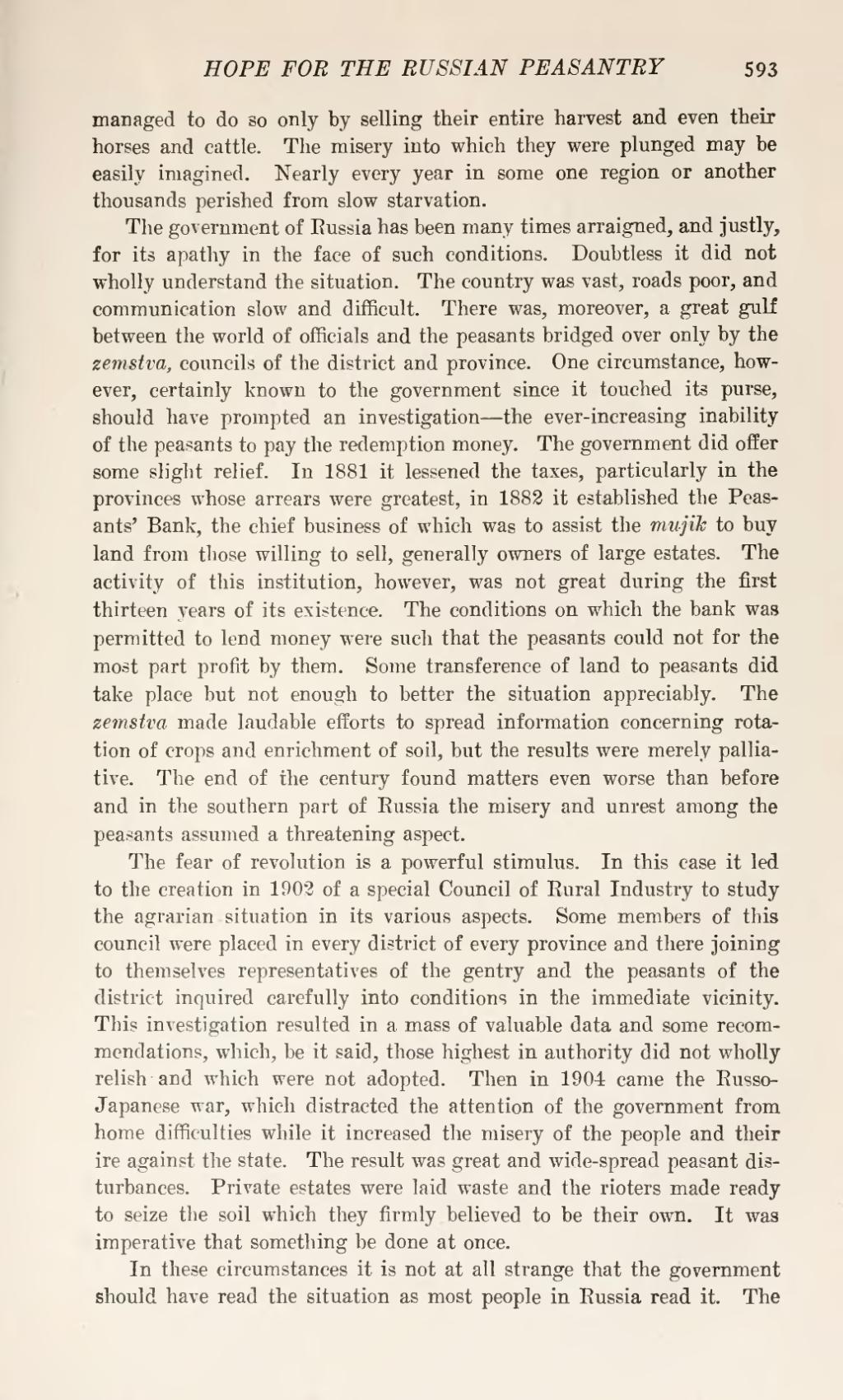managed to do so only by selling their entire harvest and even their horses and cattle. The misery into which they were plunged may be easily imagined. Nearly every year in some one region or another thousands perished from slow starvation.
The government of Russia has been many times arraigned, and justly, for its apathy in the face of such conditions. Doubtless it did not wholly understand the situation. The country was vast, roads poor, and communication slow and difficult. There was, moreover, a great gulf between the world of officials and the peasants bridged over only by the zemstva, councils of the district and province. One circumstance, however, certainly known to the government since it touched its purse, should have prompted an investigation—the ever-increasing inability of the peasants to pay the redemption money. The government did offer some slight relief. In 1881 it lessened the taxes, particularly in the provinces whose arrears were greatest, in 1882 it established the Peasants' Bank, the chief business of which was to assist the mujik to buy land from those willing to sell, generally owners of large estates. The activity of this institution, however, was not great during the first thirteen years of its existence. The conditions on which the bank was permitted to lend money were such that the peasants could not for the most part profit by them. Some transference of land to peasants did take place but not enough to better the situation appreciably. The zemstva made laudable efforts to spread information concerning rotation of crops and enrichment of soil, but the results were merely palliative. The end of the century found matters even worse than before and in the southern part of Russia the misery and unrest among the peasants assumed a threatening aspect.
The fear of revolution is a powerful stimulus. In this case it led to the creation in 1902 of a special Council of Rural Industry to study the agrarian situation in its various aspects. Some members of this council were placed in every district of every province and there joining to themselves representatives of the gentry and the peasants of the district inquired carefully into conditions in the immediate vicinity. This investigation resulted in a mass of valuable data and some recommendations, which, be it said, those highest in authority did not wholly relish and which were not adopted. Then in 1904 came the Russo-Japanese war, which distracted the attention of the government from home difficulties while it increased the misery of the people and their ire against the state. The result was great and wide-spread peasant disturbances. Private estates were laid waste and the rioters made ready to seize the soil which they firmly believed to be their own. It was imperative that something be done at once.
In these circumstances it is not at all strange that the government should have read the situation as most people in Russia read it. The

